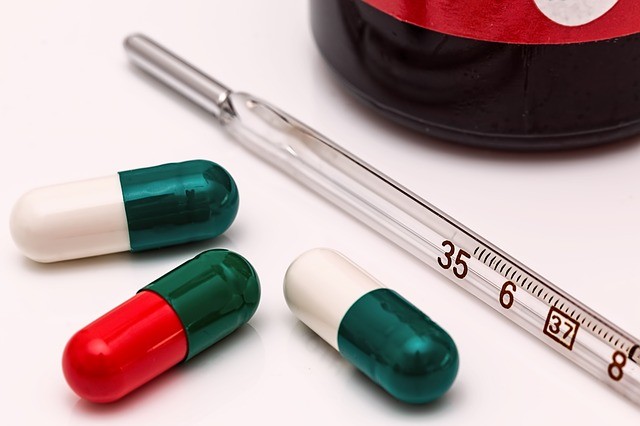Find out if your body is normal or not. Check out the article we found over at Health Magazine.
Health magazine expert Dr. Roshini Raj answers your questions about everything from boobs to body odor.
I have one breast that’s much bigger than the other. Is that weird?
Nope. Most women have slight differences in the shapes and sizes of their breasts (one nipple points north while the other points south, for example). It’s normal to have one breast larger than the other; sometimes, even by a cup size or two.
As long as this size difference isn’t new, you’re OK. But if one breast has suddenly gotten bigger or feels different (thicker, fuller, or lumpy), you need to be checked out by your doc. A unilateral (one-sided) change could be a sign of a cyst or even a tumor.
Are women with large breasts more likely to get breast cancer?
Being well-endowed doesn’t up your chances of developing cancer. That said, being overweight doesincrease your risk of breast cancer. So if your curves are from your weight, you’re at a higher risk than a woman who is slim.
Big boobs can also make feeling lumps or detecting tumors more difficult. Larger breasts have more tissue, and the more tissue there is, the more you have to feel and inspect. That’s why it’s important for women with larger breasts to visit their doctor annually (if not more often) for a clinical breast exam, and to get yearly mammograms if over 40.
I bruise really easily. Should I be worried?
It is something you should discuss with your doctor. Bruises do tend to show up more often as you age, though. Your skin gets thinner and blood vessels become a little more fragile, so it could be that you simply need to be more careful when hustling past sharp corners. You also may bruise more if you’re taking drugs that hamper your blood’s clotting ability, including over-the-counter blood thinners such as ibuprofen or aspirin, or prescription blood thinners such as warfarin (Coumadin). Dietary supplements like fish oil and vitamin E, and foods like garlic and ginger have also been shown to have a blood-thinning effect. Talk to your doctor if you suspect your bruising is the side effect of a blood thinner.
If you experience nosebleeds along with bruising, or if the bruises are large and painful or appeared after you began taking a new medication, see your doctor to rule out a serious illness or drug complication.
Why do I suddenly have bad body odor?
A quick primer on BO: Bacteria on our skin survive by munching on fat in our sweat; when they digest it, they produce the smell we know and loathe. So why more stink now? If you’re perimenopausal or menopausal, fluctuating hormones may be sending your sweat glands into overdrive. Stress can also boost sweating.
In both cases, your perspiration should lessen in time—and the stink, too. For now, try an antiperspirant with the words “clinical protection” on the label—you’ll get more active ingredients to help fight off sweat-happy bacteria.
Is it ok to stick a Q-Tip in your ear?
We know, it feels so good to get in there! But cotton swabs are meant for use on the outside of your ear, not the inside. Sticking one in too far can push wax deeper inside the ear canal, possibly damaging the eardrum. And a little wax is actually healthy—it helps protect your sensitive ear canal.
If your ears are feeling really clogged up, see your doctor, who can suggest ear drops to use at home, or safely remove blockage for you.
To stop your pain and avoid future problems, you need to prevent the need to strain. Try a high-fiber diet plus six to eight glasses of water a day. This combo can soften your stool, making it easier to empty your bowels. The best natural fiber sources are whole grains, vegetables, and fruits, but in a pinch a supplement will do.
For temporary relief from pain or itching, you might try an OTC cream or a sitz bath (an apparatus that allows you to soak your bum in warm water while sitting on the toilet). Ask your doctor about adding salt or baking soda to the water for additional relief.
I’ve heard I’m not supposed to keep medications in the bathroom—what else do I need to know about storing them?
It’s true: Medications can lose potency if exposed to extreme temperatures or humidity, which is why it’s better to keep pills in a cool, dry place, like a closet, rather than in the bathroom. Other considerations: If you’re refilling a prescription by mail, check to see if your medication is sensitive to heat or cold (it should say on the bottle), since it might sit in the sizzling sun or frosty chill of the truck or your mailbox.
If your Rx is susceptible, the pharmacy should package it appropriately (some even come with dry ice). And if you’re going on a road trip, avoid stowing your meds in the trunk, which can get swelteringly hot on a warm day.
I got two bad colds last winter that turned into tonsillitis. Is that a reason to have my tonsils out?
Removing the tonsils, those two fleshy bits of soft tissue at the back of your throat, used to be common, but not anymore. These days, your doctor will probably consider taking out your tonsils only if you have very frequent tonsillitis (seven times or more in a year, or multiple times each year for several years), if you have a severe bacterial infection in the area that doesn’t improve with antibiotics or if your tonsils are making it hard for you to breathe or swallow.
Most other episodes of tonsillitis—infection and inflammation of the tonsils that lead to a sore throat and difficulty swallowing—are caused by viruses and go away on their own, so there would be no need for you to go under the knife.
My period is suddenly irregular—what’s up with that?
It’s not unusual to miss a period every now and then, or for your period occasionally to be different (lighter, heavier, longer or shorter) than usual. If you’re not pregnant, other factors that can throw your hormones (and thus your cycle) out of whack include stress, a large weight loss or gain, travel, a big increase in the amount of exercise you’re doing or illness.
Period irregularity is also a very common symptom of perimenopause, the stage leading up to menopause, which starts anytime between your late 30s and early 50s and can last between a few months and 10 years. (When you’ve missed a full 12 months of periods, that’s officially menopause.)
Treatment suggestions may include taking birth control pills, trying hormone therapy or adopting a more regular and healthy diet and workout plan.
Is it normal to get stomach pains after eating a big meal?
It depends on how big the meal was. Gas is produced during the digestion process, which causes the stomach and intestines to expand. Most of the time, you don’t notice the expansion, but if you have a very large meal or one with a lot of gas-producing foods—like broccoli or beans—you may have painful bloating. Another possible cause: acid reflux, especially if the meal included tomato sauce, caffeine or citrus fruit. Reflux is commonly associated with heartburn but can also cause abdominal pain and bloating. This is nothing to worry about if it happens occasionally, but if it occurs more than three times a week, talk to your doctor about taking meds to control it, since over time the acid can cause inflammation of your esophagus.
If your postmeal pain is constant and severe, is in your upper abdomen and is accompanied by fever or nausea, see a doctor. It might be a gallstone—a hard pebble in your gallbadder that can get lodged in a duct and cause pain following a feast, and sometimes lead to inflammation and infection. Your doctor may want to watch and wait, since these stones often go away on their own. Or you may need medication or surgery to treat the problem.
I took antibiotics to clear up a UTI, but I still have some symptoms. What’s going on?
It’s possible that the antibiotics—even if you finished the entire course—may not have wiped out all the bacteria causing the problem. Your doctor can check your urine to see if there are any remaining. If you again test positive for a UTI, your doctor may simply try putting you on a different antibiotic. But if you test negative for bacteria, the irritation may be due to something you’ve come into contact with, such as spermicidal jelly or bubble bath. Finally, you could have interstitial cystitis, which is chronic, unexplained inflammation of the bladder—and is sometimes mistaken for a UTI. Thankfully, there are a number of medications and therapies that can treat this condition. Visit your doctor or see a urologist to discuss your next steps.
Next Article: Why We Should Immediately Detox Our Body From Sugar
Read full article: Is My Body Normal?







Recent Comments